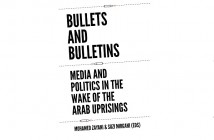

Herb London
Herbert I. London is president of Hudson Institute and professor emeritus of New York University. He is the author of Decade of Denial (Lexington Books, 2001) and America’s Secular Challenge (Encounter Books, 2008).
With riots and demonstrations unfolding in Egypt yet again, it appears that the Arab Spring has morphed into Grim Winter. Several thousand Syrians have been killed by an Assad regime willing to apply murderous policies against dissidents. Even the post-conflict situation in Libya – heralded as the emergence of an open government – remains uncertain.
How these roiling conditions in the Middle East return to a form of equilibrium is unknown. But one nation in the region anticipating the percolation of discontent, has attempted to charge in front of reform. On July 1 Morocco voted for constitutional change proposed by its King Mohammed VI. These amendments guarantee the full equality of women and the rights of minorities, including Jews and Berbers. Moreover, these reforms criminalized torture, established the independence of the judiciary and invested executive authority in the head of a party that wins the most seats in parliament.
By any Arab standard this is remarkable even if these reforms are not widely recognized. For some, these reforms violate sharia; for others, they invite liberal and, consequently unwelcome, developments. But the King recognizes the need to distribute authority, notwithstanding the fact he remains in charge of the religious establishment and military affairs.
For reasons that may be elusive, the State Department has been quiescent about Moroccan reforms. Even the November 25 elections in which opposition parties participated did not prompt formal affirmation from the Obama administration. Europeans, however, have been enthusiastic about developments in Morocco which they see as momentum for a genuine democracy.
What the elections augur for the future may be unclear. After all, the Justice and Development Party, an Islamist group, captured a plurality of the incoming legislature, thereby making Morocco the second Arab nation, after Tunisia, to vote an Islamist party into power this year. What is not unclear is that Morocco has set its sights on being a model for regional reform different from Syria, Egypt, Saudi Arabia and Libya. Until these unprecedented Moroccan reforms, the only political model in the region was represented by Tehran and its theological despotism and Riyadh with its royal dominance and anachronistic world view.
Now, arguably for the first time in decades, there is an alternative to ideological repression in the Arab community. Morocco is not yet an exemplar of Jeffersonian liberalism, but it is on a path paved with democratic principles. Making the Berber language an official language of the nation along with Arabic is a symbolic gesture of extraordinary magnitude. It is recognition of universally agreed upon rights, including most significantly the rights of minorities. Opposition activists claim the king’s concessions did not go far enough, albeit most Moroccans contend they represent a step in an appropriate direction.
But a constitution and an election, while essential building blocks for democracy, are not in themselves dispositive. What counts is where the leaders want to take this North African nation. Will it move inexorably to democracy? Or will it backslide with pressure from other Arab states?
There remain many unanswered questions, but on one matter there is not an open question: The reforms initiated by King Mohammed should be greeted with gratitude and respect. At long last there is another model for the Arab future, one that we in the United States should embrace wholeheartedly.




